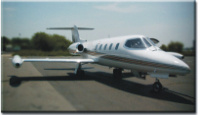
After the death of Marcus Omofuma on May 1, 1999, the Human Rights Advisory Board recommended to the Ministry of Interior in its report on "problematic forced returns" that:

- an independent human rights observer should take part on the flight to avoid reproaches of lacking control of charter flights;
- the independent human rights observer should write a separate protocol about the return procedure, to be attached to the report of the escorting policemen.
For the first time, VMÖ-Chairman Günter Ecker was requested to accompany the forced return of three Nigerian nationals by Learjet on October 27, 2001 to Lagos as an independent human rights observer.
The monitoring focuses on the enforcement of forced returns by charter flights, not on the legal procedure which led to the return decisions. The monitoring starts with the contact talks of the Escort Leader with the detained returnees on the day before the return operation, followed by the transfer from the Police Detention Centre Vienna to Schwechat airport, the flight itself and the hand-over of the persons returned to the border authorities in the country of destination.
On June 28, 2011 the Implementing Ordinance of the Aliens Police Act (Fremdenpolizeigesetz-Durchführungsverordnung, FPG-DV) was changed. According to § 10 FPG-DV, a Human Rights Observer must be present in forced returns organised by the Ministry of Interior or in a JRO (joint return operation), which starts with a contact talk. He/she shall monitor the return until the arrival of the returnee in the country of origin, insofar it is not a commercial flight. The Human Rights Observer shall provide a written report to the Ministry of Interior within one week.
Since 2014, the human rights-related findings of the monitoring are reported to the "Federal Office for Immigration and Asylum" (BFA), the responsible authority for forced return operations. The findings are also presented and discussed in the annual vocational training of those policemen, who are escorting forced returns.
Our Human Rights Observers monitored 72 return operations in 2016 - many of them were "joint return operations" coordinated by the EU-Agency "Frontex" and organised by Austria. Our 9 forced return monitors are trained regularly - based on perennial professional experience in the area of migration and asylum. Over the years they supported the implementation of improved human right standards in organising forced return operations by charter by making several recommendations.
Günter Ecker could present the experience gained so far in monitoring forced return operations by charter on September 18, 2009 on invitation of the EU-Commission in Brussels, on invitation of Frontex on May 26, 2010 at the "10th Meeting with Direct Contact Points in Return Matters" in Warsaw and on May 26, 2015 in Riga at the conference "The Implementation of the Return Directive: challenges and good practices from the perspective of the Central and European countries". Various institutions in EU-member states were advised on implementing forced return monitors - the last few being the border guard in Poland (May 2012), the ombudsman in Greece (December 2012), the European Institute in Bulgaria (April 2013), authorities and NGOs of Lithuania, Latvia and Slovakia (study visits in January and October 2014), as well as ICMPD in the framework of the project "Forced return monitoring" (2014-15).
Following the example of Austria and Luxembourg, where the national Red Cross is doing this job, the other EU-member states are called upon to take an independent forced return monitor on board if they want to organise a "joint return operation" coordinated by Frontex.

The suggestion that observers be put on board deportation flights is a response to claims by failed asylum seekers that they have been hit or abused by guards. Unveiling plans to strengthen Frontex, Cecilia Malmström, the Swedish EU commissioner for home affairs, said: "Safeguards [should be] put in place to make sure that [Frontex] return operations are carried out in full respect of fundamental rights. For example, an independent monitor shall be present during such operations and report ... on compliance with EU law." Guardian, 14.03.2010 |
Contact
Günter ECKER
Alser Straße 20, Atelier, Tür 21
A-1090 Wien
Tel: +43 (664) 3003224
eMail: ecker@verein-menschenrechte.at